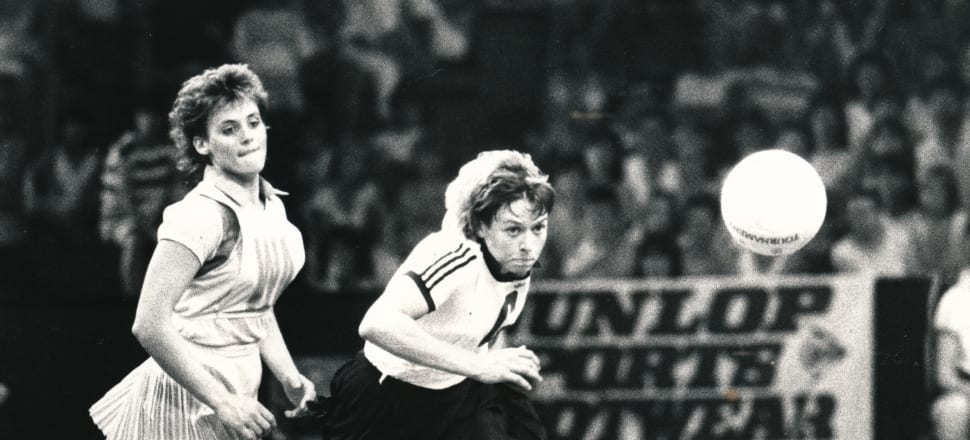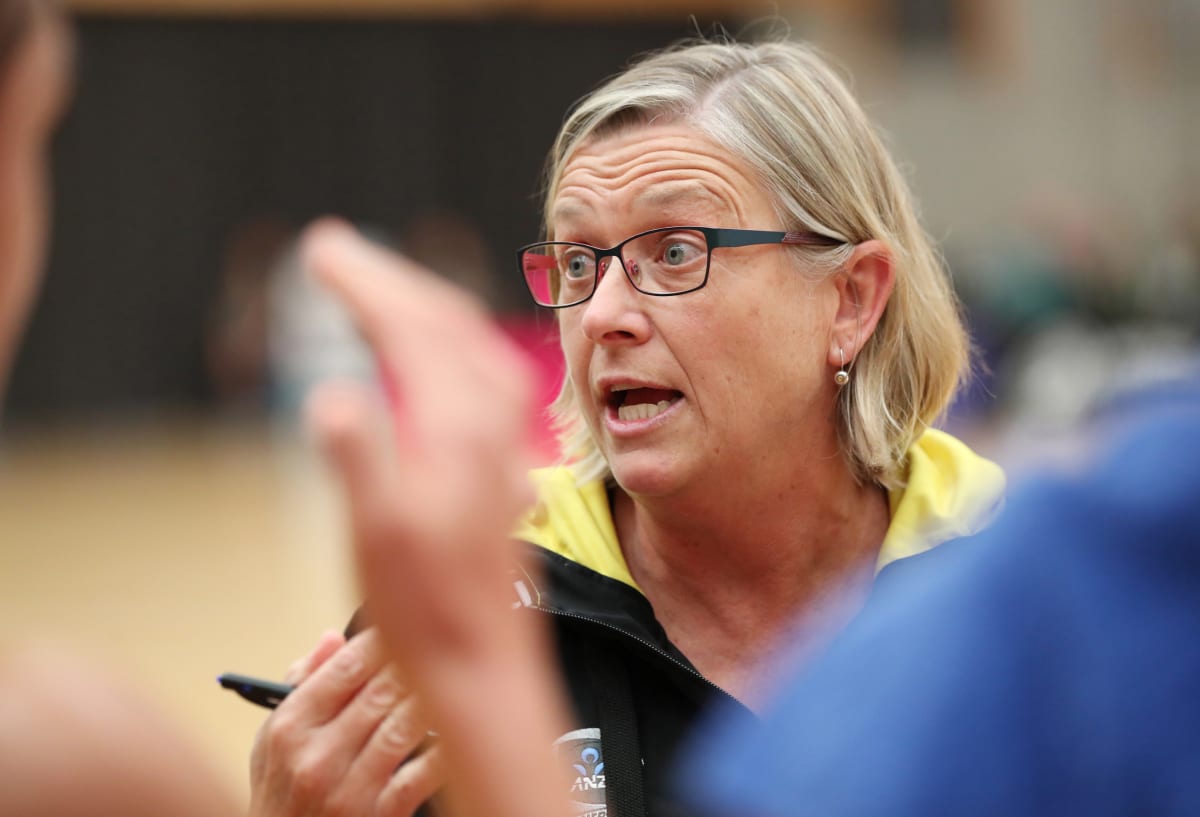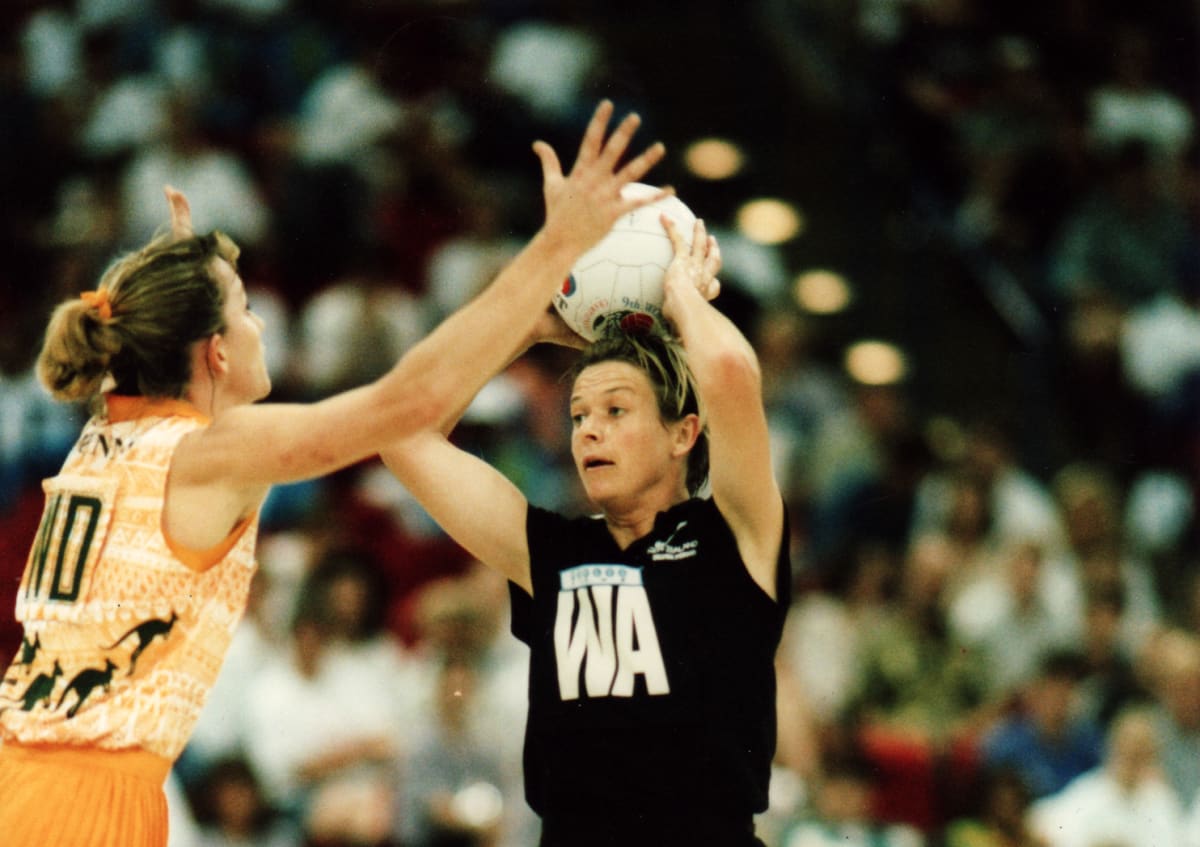
Former Silver Ferns captain Sandra Edge inspired a generation through her on-court exploits. Now, 27 years after hanging up her bib, she continues to make a difference from the sidelines. Jane Hunt writes.
From the young girl on the East Coast who excelled at a number of sports simply because she loved to compete, netball became Sandra Edge’s sport of choice. It was effectively entwined in her DNA.
She etched her place in the sport’s history not only as a national treasure, but one admired the world over during her illustrious Silver Ferns career spanning from 1985 to 1995.
Edge, who recently turned 60, has had numerous off-court careers over the years, including dental nurse, bank officer and teacher. But through it all, netball has been the one constant - a variety of roles ensuring she’s remained part of the framework which ultimately is helping develop and set future Silver Ferns on the pathway.
“There’s the general enjoyment and reward you get from working with young people while trying to give them confidence through developing their skills,” Edge says of her long involvement in the game.
“And then I just love the netball people, right from way back. And when you’re combining both, you’re in a pretty good place.’’
READ MORE: * Where is she now? Helen Mahon-Stroud * Where is she now? Julie Seymour
Edge was born in the little community of Te Puia Springs on the East Coast, and was educated at Tokomaru Bay School, Iona College in Havelock North as a boarder, and Lytton High School in Gisborne.
Her pedigree is highlighted by the immensely talented sporting family she belonged to – with brother Thomas playing for the All Whites and sister Margaret, the Black Sticks.

Edge moved to Wellington as a 17-year-old in 1980 to do her dental nurse training. In her 40s, she thought teaching would enhance her coaching expertise so went on to complete a Bachelor of Teaching through the University of Waikato.
A trait of the era in which she played meant most senior players actively took up coaching club teams and Edge was quickly on board, coaching St Mary’s Old Girls teams in Wellington when still in her late teens, kick-starting a life-long passion.
“You’re always trying to get better; you make so many mistakes when you’re new at something. And that’s why it’s been nice to have been in netball for the last few years in that you just keep learning, you keep growing and keep trying to do things better,’’ she says.
Opportunity knocked throughout a well-travelled playing career which broadened her resume when donning the provincial colours of Poverty Bay, Wellington, Waikato, Southland and Auckland. In 2010, Edge came full circle with her return to Wellington with husband, former All Whites captain Rodger Gray, and their two young sons.
Their eldest son, Christian, now 25, has a degree in sports business management, and plays football for Auckland City while also coaching. Jeremy, 23, is at Lincoln University doing viticulture and oenology and has just finished making his first batch of wine.

In the intervening 12 years in Wellington, Edge has held a variety of roles in the Netball Central Zone, including coach development officer, Pulse assistant coach and specialist midcourt coach, and coaching a variety of age-group teams. She’s now working for Netball Wellington Centre in the area of player development.
“We work closely with Netball Central Zone, who look after the National Netball League and ANZ Premiership teams [Manawa and Pulse]. I help out with a development programme for all talented players, which includes representative programmes, then ensuring they align with the NNL pathway,’’ she says.
“We’re focused on long-term athlete development, so we aim to provide what they need and within that, age and stage relevant, they progress. I absolutely love what I do.
“There are big expectations on what we do at Netball Central and we’re continually looking at improving and doing things better to create the desired end result.’’
Although she was never big on personal goals, Edge’s illustrious career spanned three World Cups, winning gold in 1987, silver in 1991 and bronze in 1995, when she was the Silver Ferns captain. Her highlights reel is defined by moments across the netball canvas.

“I just did it because I loved it. I loved the game, I loved playing with mates, I liked the skills of the game, I loved the running and jumping,’’ says Edge, who captained the Ferns in 21 tests.
“There are heaps of Silver Ferns highlights and then heaps of club highlights as well. Like winning a club final by one, which has just the same excitement.
“It’s all about people, the experiences. I’ve got a soft spot for the 80s and I don’t quite know why but that holds a lot of fond memories. It was a bit scary but fun - you could be a bit naughty but ultimately you worked hard and you played hard.”
Winning the 1987 world title was obviously a highlight for Edge. “I was in the team with some of my idols and didn’t have much responsibility at that stage which was kind of cool. I was a free spirit and had a licence just to play,” she says.
“But the further on you go, there’s expected responsibility. And when you’re a leader, you can impact people a bit more for the good and for the not good. And when you’re younger, you’re naturally fitter, so you’ve got to work a bit harder when you’re older. So, the 80s was all care, no responsibility…just bloody playing netball, really.
“I remember the Iona school trips. The best thing was the trips to Nga Tawa and all the other boarding schools to play netball and have fish and chips in Dannevirke, for goodness sake.’’

Edge played ahead of the professional era. She was still working fulltime as a dental nurse when first selected for the Silver Ferns, while also turning out at club and representative level. She’s watched the sport’s evolution with interest.
“When I first played the big time in the mid-80s, I would call us professional amateurs. We worked as well. And then when I finished in the mid-90s, we were amateur professionals and I found that time quite messy,’’ she says.
“For me, I just preferred the professional amateur. Today’s players have to be businesswomen as well and I wasn’t very good at that side of things. If you’re not used to it or not that way inclined, and you’ve done everything voluntarily in the past, it’s a massive shift. And it was one that didn’t sit comfortably with me, although it wasn’t professional when I left.’’
Despite the passing of years and life’s natural progression, Edge has in essence remained unchanged. The sport which shot her to fame is still deeply etched in her blood, embraced and delivered with the same dignity, passion and unassuming manner as if it were yesterday, but in a different guise.
“Where I am now, what I try and do is give our players really neat experiences on the court and off the court,” she says. “We want netball to be thriving and successful, and for that we need good people in all aspects of the pathways.
“We don’t take anything for granted and we’re just trying to make it better.’’







